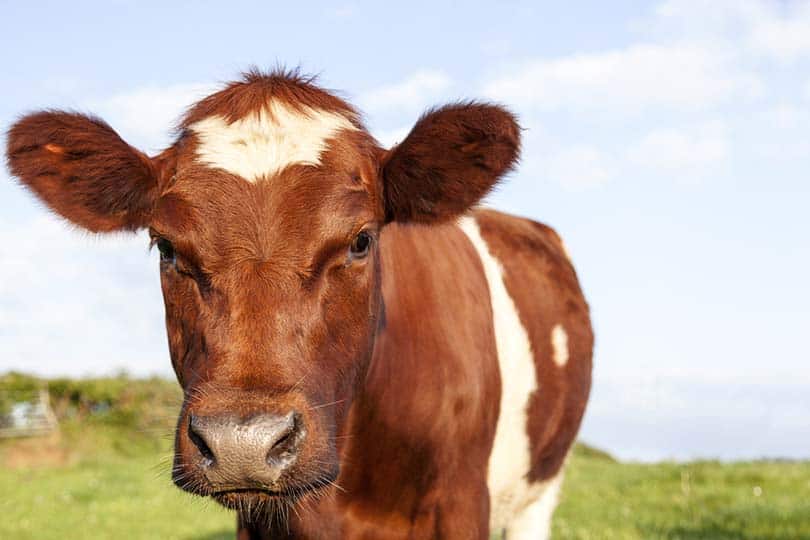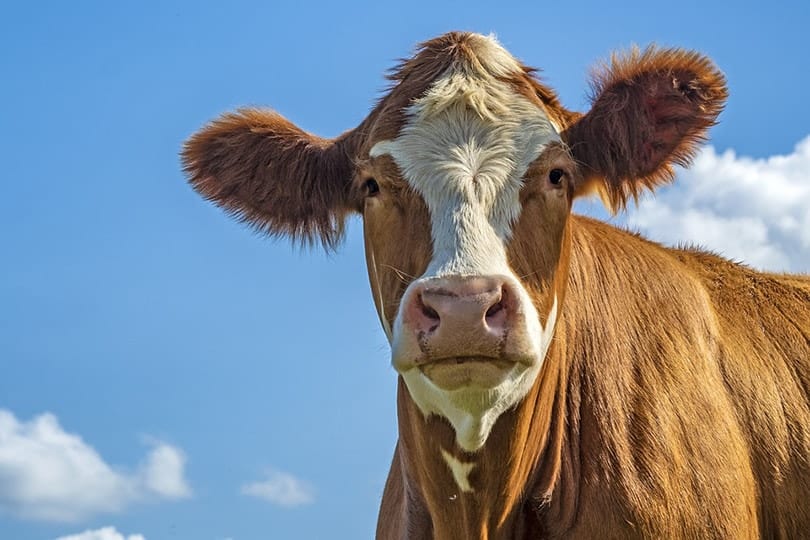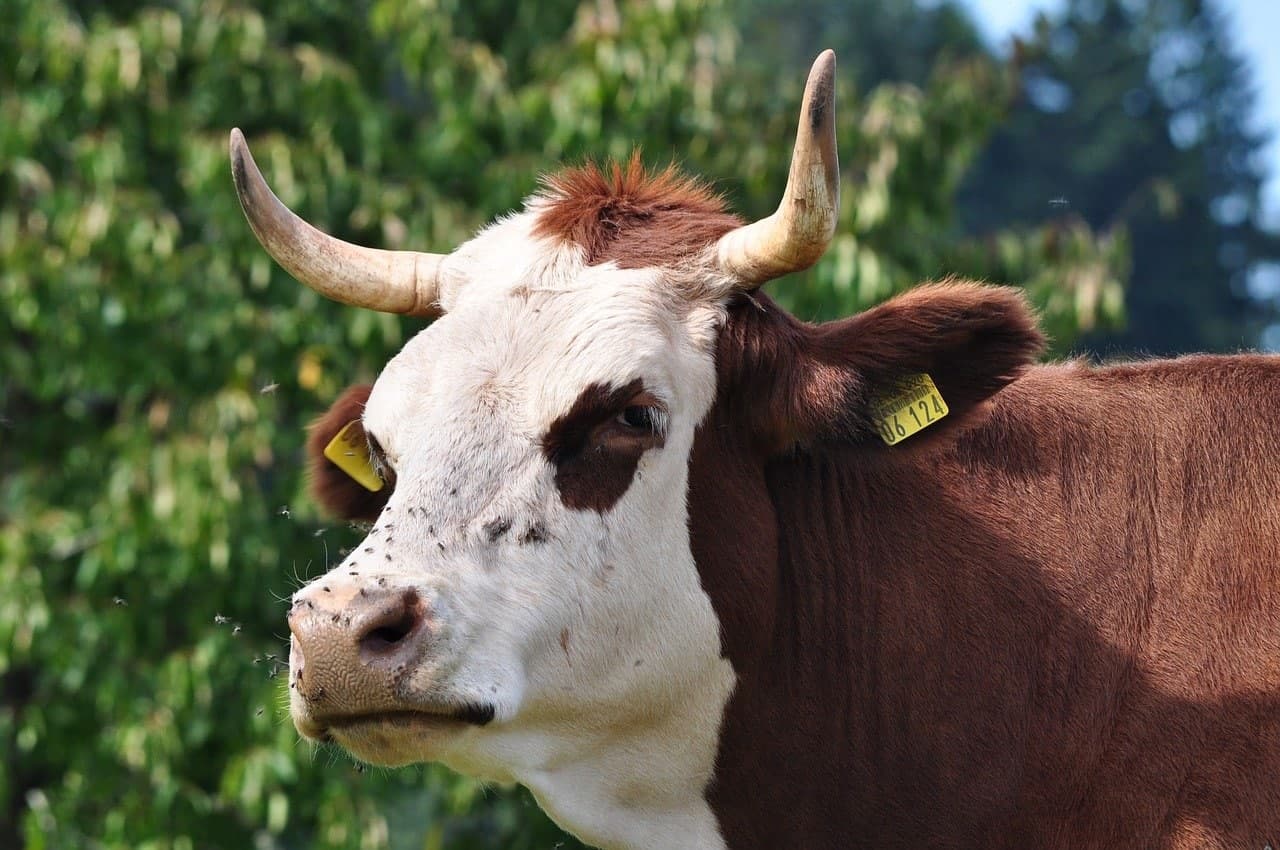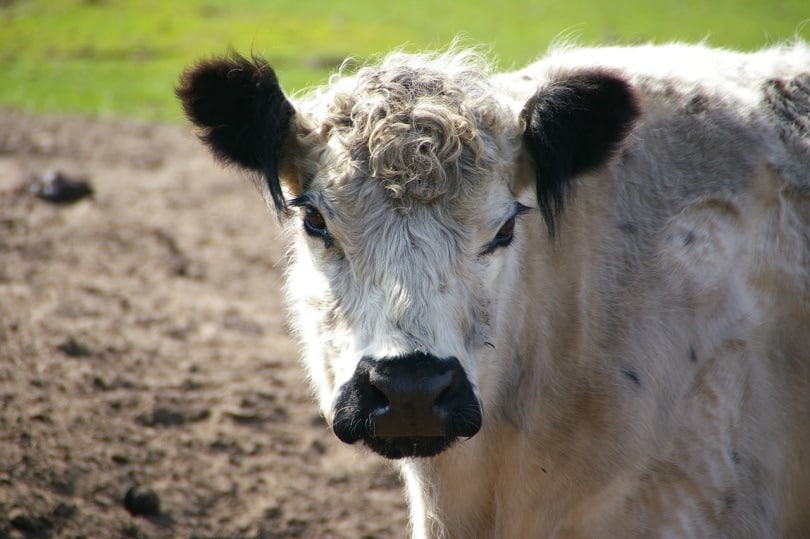Contrary to stereotypes, cows are not mindless creatures. They’ve been shown to feel and process complex emotions. They even cry, complete with shedding tears just like humans. But why? What stimuli are responsible for causing these beautiful giants to cry?
Cows do shed tears from their eyes and have a distinct crying moo when they’re distressed. Keep reading to learn more.

How Do Cows Cry?
Cows cry by making loud, high-pitched wailing moos. Research shows that cows have different moos for communication and have a distinct “crying” moo that they use when they’re distressed or upset. Cows also shed tears from their eyes as humans do.
Do Cows Cry at Night?
A common myth is that cows cry at night. However, mooing at night is a positive social behavior. Cows only need to sleep for a few hours. The rest of their night is spent chatting, socializing, and protecting their herd from potential threats.

Why Do Cows Cry?
1. Fear
Fear is an important emotion in the evolution of cows. They are large but we need not forget that they are prey animals. Wild cattle travel in herds for protection and a fearful cry is a quick warning to the entire herd that they may be in danger.
Cows are shown to understand death and they understand the purpose of slaughterhouses. Slaughterhouses try to keep the process as calm for the cattle as elevated levels of stress hormones degrade the quality of the meat harvested.
However, cows have been observed to know when they are about to die, such as the case of a pregnant cow in China who was filmed being led to her slaughter with tears in her eyes and kneeling before the slaughterhouse employees crying for her life. Animal lovers raised over $3,500 to buy the cow from the slaughterhouse.
2. Grief
Cows are known to experience grief and they express it much in the same way humans do. Often, it’s unprofitable for dairy farmers to raise young bulls born on their farms. When bulls are born on dairy farms, they’re taken from their mothers and either sold to other farms or destroyed. A mother cow will often search for her missing calf for days and cry inconsolably.
Additionally, cows who were raised alongside their family members will grieve when their family members die of natural causes as well. Cows will often stand vigil over the bodies of their fallen loved ones and cry for their losses.

3. Hunger
Cows will cry out when they’re hungry and cannot find food. This trait is shared with most social animals, including humans. A cow’s herd will respond to a crying cow much the way humans would, by trying to help solve the issue. Thus, hungry cows will call out for their herd who many have found nearby food sources.
4. They Need to Be Milked
Cows produce milk throughout the day and if not milked can develop discomfort or painful illnesses, like mastitis. Milking is relieving and pleasant for cows and they may become irritable if they need to be milked.
5. Loneliness
Cows are social animals like humans. While their emotional range isn’t the same as humans, they experience complex social emotions. They crave social interaction, develop deep social bonds, and can get lonely.
Cows can develop friendships, rivalries, and animosity with other cows. They can even recognize their best friends and get excited to go out and play with them. Cows may cry out when they need social interaction or reassurance from their herds.

6. Stress
Lastly, cows may cry out when stressed out. Any of the above factors can cause a cow to become distressed, but cows can also be stressed for other reasons. If a situation is unfamiliar or uncomfortable, something has recently changed, or another cow in the herd is stressed, a cow may become stressed.
Final Thoughts
Even if cows don’t have the same emotional range as humans, these gentle giants feel a complex range of emotions that include grief and love. Though a cow’s cry is not the same as a human’s, it bears similar emotions. Understanding the psyche of a cow helps us better take care of the cows in our world.
Next on your reading list:
Featured Image Credit: wernerdetjen, Pixabay
